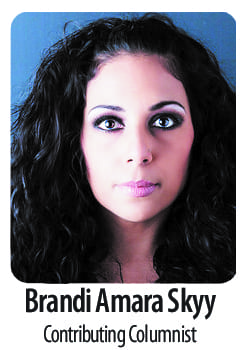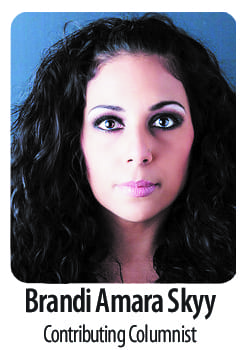 If you really want to understand what’s going on in our world, both globally and within our LGBTQIA community, you can learn all you need to from last Sunday night’s Oscars awards show. And I don’t just mean the fiasco that happened when Warren Beatty and Faye Dunaway pulled a Steve Harvey and called out the wrong name for the winner in the Best Picture category. No, I’m talking about the entire show from, start to finish.
If you really want to understand what’s going on in our world, both globally and within our LGBTQIA community, you can learn all you need to from last Sunday night’s Oscars awards show. And I don’t just mean the fiasco that happened when Warren Beatty and Faye Dunaway pulled a Steve Harvey and called out the wrong name for the winner in the Best Picture category. No, I’m talking about the entire show from, start to finish.
Start with the moment all the winners had announced and everyone was congratulating the Oscars for being “so inclusive” this year — this one year, out of 89 years. That’s only 1.12 percent, so I think I’ll hold off till the 90th year before I start handing out snaps for the Oscars, you know, just to make sure 2017 was not the “year of the token.”
Then consider Jimmy Kimmel’s live tweeting Donald Trump, exemplifying our urge to document, live tweet and live stream anything and everything, to such extremes that we fail to give the present moment — and the people in it — our full attention.
Then think about Kimmel parading celebrity chasers into the auditorium so they could gush over all the stars as if the actors and actresses were gods. As funny as I thought it was, I still wonder if it was the same celebrity worship mentality that allowed a certain reality star to rise to the ultimate office of power. How’s that celebrity idolization turning out for us now?
And then there’s Casey Affleck, who received the Academy’s top acting honor despite having been charged with sexual assault. It proves, once again, that women’s bodies and women’s rights aren’t included in the equation.
What’s worse is that Brie Larson — who won an Oscar last year for playing a woman who was physically, emotionally and sexually abused by her husband, the same things two women accused Affleck of doing — had to hand him the award. Perhaps the Academy just considers calling women “cows” and telling a woman she should sleep with a male crew member because “it’s about time she had a baby” to be mere “locker-room banter,” nothing important.
But for every real issue I had with the Oscars, there were many more moments that gave me so much life. Like the GE commercial dreamed off an alternative universe where female scientists are the real celebrities and are treated as such.
And I loved Jimmy Kimmel’s opening monologue, in which he didn’t try to say something to unite us, but instead told us something we all needed to hear — that change begins with a conversation and all we have to do is use our voices.
And then there was Moonlight winning Best Picture, despite all the odds and history being stacked against them, and despite the fact not many of our own community even knew that a story about them was being honored.
But where I really caught glimpses of hope for change were from the actors, directors and visionaries themselves.
Viola Davis’ acceptance speech on art celebrating life and the herstory she made that night lifted my creative spirit and brought tears to my eyes. Gael García Bernalv going off script when presenting the animation Oscar to let the world know that walls don’t build better societies made my brown skin tingle and my Chicanx heritage proud.
When two-time Oscar winner Iranian director Asghar Farhadi made his priorities known by making a conscience decision to be absent from the awards out of “respect for the people of [his] country and those of six other nations whom have been disrespected by the inhumane law that bans entry of immigrants to the U.S.,” my third-generation immigrant roots rose with him.
Spoiler alert: We are all immigrants.
And Moonlight winning Best Picture — the first queer movie to ever do so — made me feel finally my experience as a queer person of color was being recognized as a more Oscar-worthy story than another musical set in a la-la land of make believe.
But what the Oscars really showed me — and everyone else watching on Sunday night — is that our art, our voice, our words, our actions — good or bad — hold the real power. And we the people, just like every person who stood on that stage, have the power to use our art and our voice to lift people up, make communities rise, to create dialogue and to create change.
The Oscars showed me is that my art is powerful. My voice is powerful. People are powerful.
I am powerful.
And that’s an Oscar worthy message.
Brandi Amara Skyy is a drag artist who writes and plays in magic. You can find out more about her and many projects at brandiamaraskyy.com.

